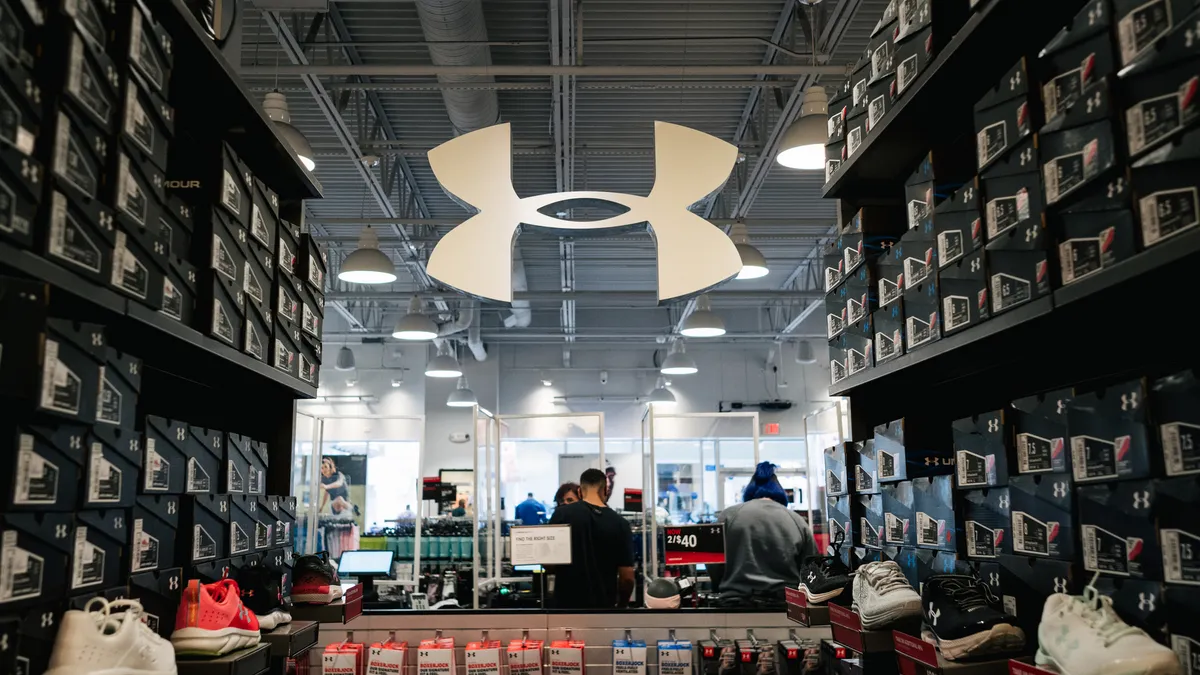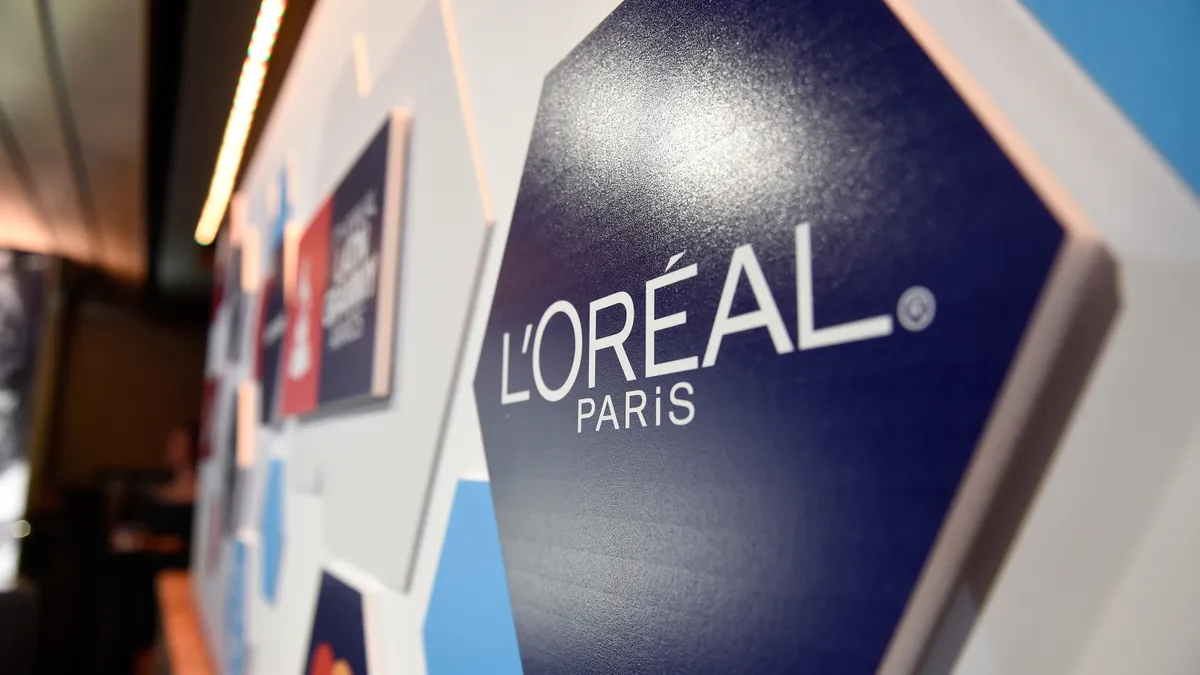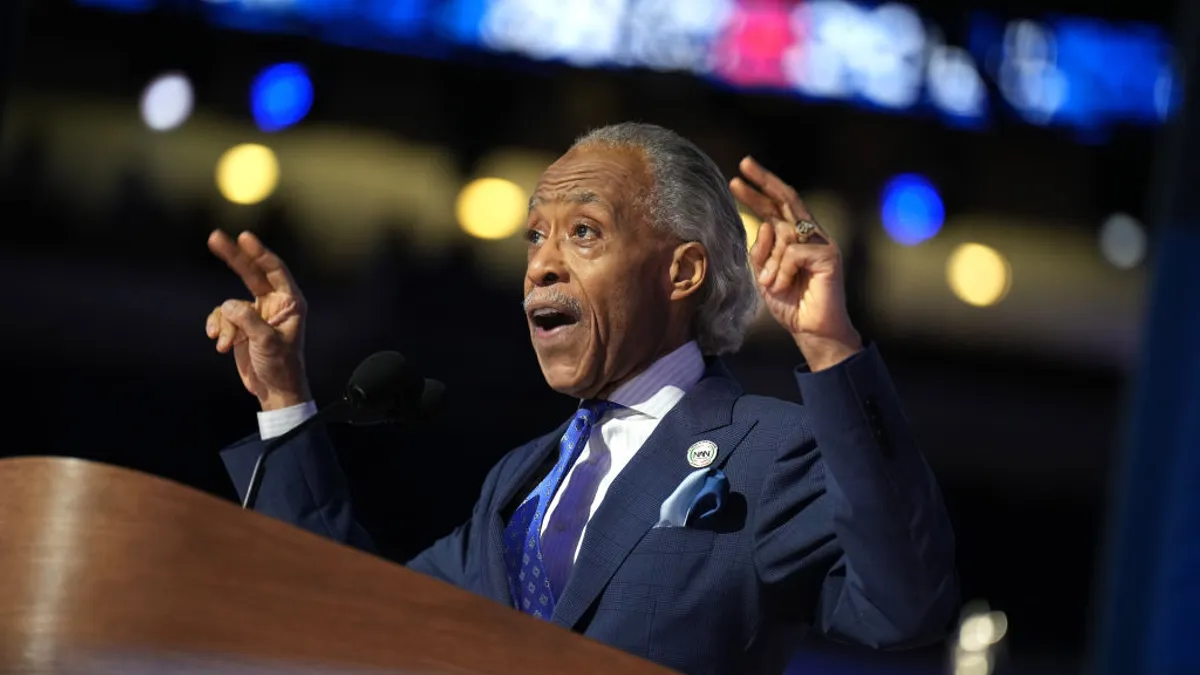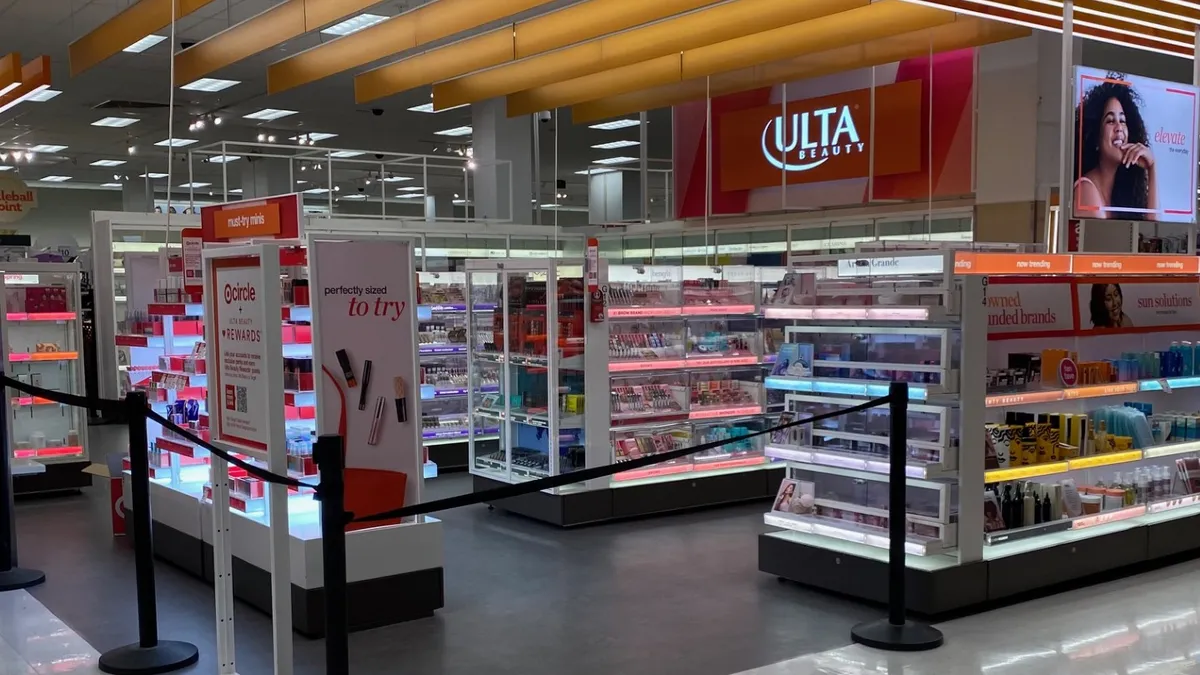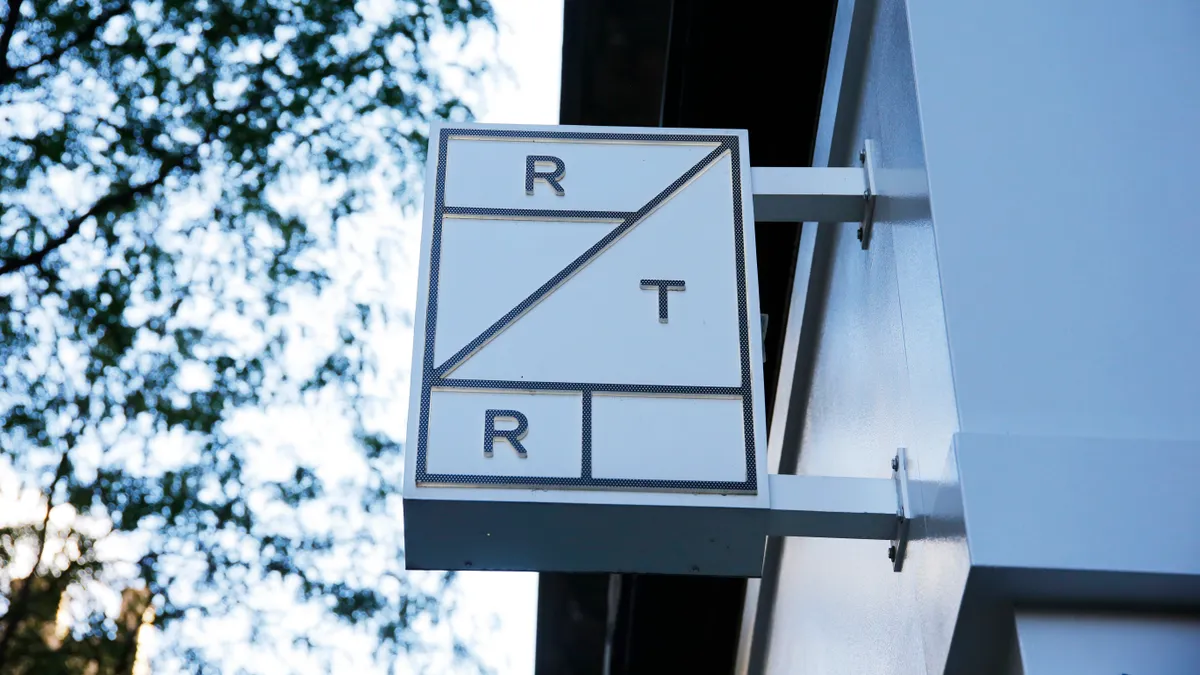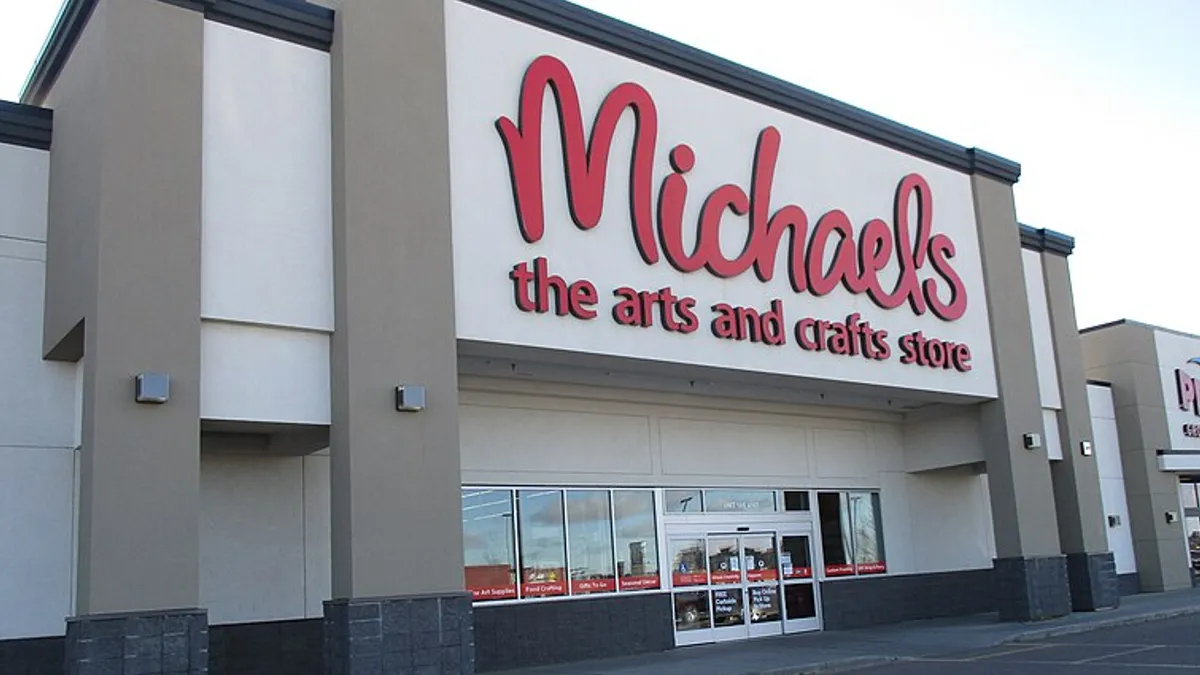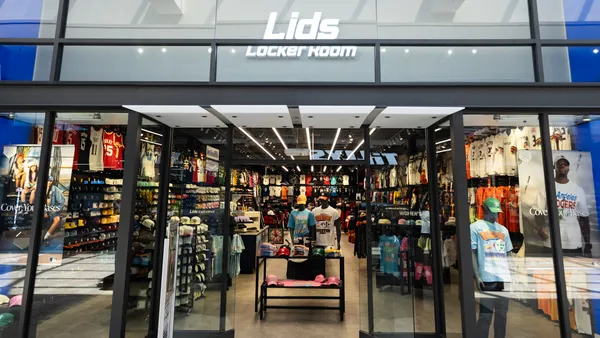Lululemon may have shut down its men's-only store experiments over the summer, but the brand's test-and-learn mentality is just ramping up when it comes to experiential megastores.
The first store of its kind, which features workout studios and snack bars, opened in Chicago's Lincoln Park in July. Just a few months later the brand is debuting a similar concept in the Mall of America in Minnesota. The new location has yoga and HIIT (high-intensity interval training) studios, men's and women's locker rooms, a "grow room" customers can rent out for group meditations or other events, and a "fuel bar" complete with seating areas that serves coffee, smoothies and some other grab-and-go items.
These incarnations of Lululemon are the largest stores the brand has, which is perhaps fitting given that the Mall of America is one of the largest centers in North America. The Mall of America location is an astonishing 19,700 square feet, 6,000 of which the brand touts are dedicated to the "experiential area." To further press the point, there are also two entrances, one for the straight retail side of the store and one for the experiential.
"It is going to have our fullest assortment of product from men to women to full accessories, the lab will show up really powerfully there, and obviously with the weather in Mall of America right now we'll have a really good outerwear section, which we feel great about," Celeste Burgoyne, Lululemon's executive vice president of retail for the Americas, said in an interview. "So a really great shop experience, but what we're really excited about in both Lincoln Park and Mall of America is our ability to innovate in-shop, but really to innovate out-of-shop and to really bring the sweat life to life."
That includes, in addition to workout classes, a series of different events built around a quarterly theme that will be hosted on a weekly, monthly or quarterly basis. Unlike the yoga and HIIT courses, these events don't have an immediately obvious connection to Lululemon's product offerings — they serve a slightly different purpose, which is to extend the idea of community beyond exercise.
They vary greatly, from a movie series dubbed "the frame" to post-workout happy hours to thematic dinners with influential people in the local area. There's also a concert series, which features local artists, panel discussions around community topics, workshops related to Lululemon's social impact program, and a rotating selection of artwork throughout the space that is available for purchase.
A far cry from yoga classes, to be sure, but when asked about keeping Lululemon's events on-brand, Burgoyne expressed no hesitations about the programming.
"This really has been created through the innovation of our local teams creating and the demand that we've had," she said. "It isn't about pushing this, it really is that we're being pulled into these conversations and creating events in our communities."
The operative word for these experiential stores seems to be "local." Much like Nike's store concept Nike Live, which opened recently in Tokyo and Long Beach, California, in addition to the inaugural Los Angeles store, learnings about the specific community inform the store's design. While Nike Live aspires to a more neighborhood feel than Lululemon's Mall of America location, which almost by definition must be more extravagant, the events programming at the location is determined by what best serves the local community, and that also determines what other services the store offers.
Gear trial, for one thing, will be offered at the Mall of America store, in large part because the space sees a huge number of tourists and houses many employees as well, which makes trial "super relevant" in the location, Burgoyne said. Trial is free, and gives customers a chance to test products like sports bras or a pair of leggings during one of the retailer's workout classes.
The proposition could be powerful for a retailer which, despite playing a huge part in transforming the women's athletics space, remains at a relatively high price point.
"What we know is that when you get somebody in our product is really when people fall in love with it, and they're able to make the best decision for which bra or which tight, for example, is right for them," Burgoyne said. "Now that we have the space and the opportunity and the larger footprint stores, it really was just an opportunity to really take our product testing philosophy to the next level."
It's not just workout gear that customers will be able to test out free of charge — locker rooms in the store will also be stocked with products from Lululemon's self-care line, which launched over the summer and which executives said in Q2 is set to be expanded.
Since this is the brand's second experiential store, executives have already been able to take some small lessons from Lincoln Park and apply them to the Minneapolis store, including lighting, sound and storage adjustments to the workout studios and merchandise decisions based on product testing in the Chicago store.
Looking ahead, Burgoyne said the brand sees a future where roughly 10% of Lululemon stores grow into a more experiential footprint. Based on store count numbers from the second quarter, that could mean the brand would develop almost 50 such locations, if not more as the company's footprint continues to grow. They are not, however, the future of every Lululemon location.
"Being in Minneapolis last week, I started at our North Loop store, which is a very, very cute community store in the Northeast community of Minneapolis. It's about a 2,200-square-foot store and I fell in love with the store the moment I walked in. It really serves exactly what's needed for that guest," Burgoyne said. "And then, you know, about a 15-minute drive away is Mall of America, which will be a 19,000-square-foot expression for us. When you think of Lincoln Park, Mall of America and Fifth Avenue, they're really communities that we believe are ready for this fuller assortment and where it makes sense, but it is really important to note this isn't about pivoting away from something. This is really about a fully balanced portfolio to ensure that each community and our stores show up in those communities in a really authentic, relevant way."
In other words: Not everyone wants the Mall of America treatment, and not every store should be developed that way. But while Lululemon continues to test and experiment with which locations or services work best for the concept, executives feel strongly they've found a winner.
"Mall of America and Lincoln Park — they're really the heart and soul of Lululemon in a physical manifestation," Burgoyne said. "Being in that space, I'm like: 'This is Lululemon.'"








